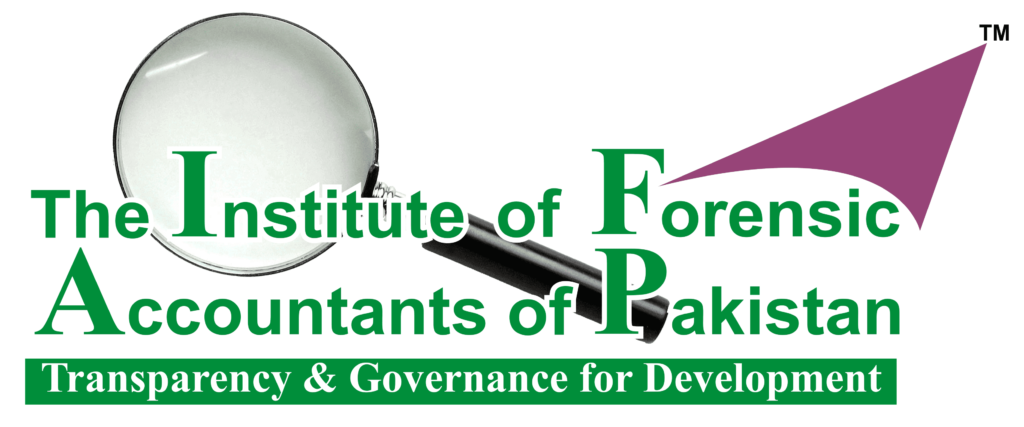The Role Of Forensic Accounting In Fraud Detection And Prevention
In today's complex and rapidly evolving business landscape, the threat of financial fraud remains a persistent concern for organizations (Smith, 2022). The rise of increasingly sophisticated fraudulent activities has made it crucial for companies to employ advanced tools and techniques to detect and prevent fraud. Forensic accounting, a specialized field within accounting, plays a pivotal role in addressing this challenge (Kranacher, 2023). This article explores the significance of forensic accounting in the context of fraud detection and prevention, shedding light on its methodologies, real-world applications, and its contributions to maintaining financial integrity.
Understanding Forensic Accounting
Forensic accounting is the application of accounting principles and investigative techniques to resolve financial disputes and uncover fraudulent activities (Silverstone, Sheetz, Pedneault, & Rudewicz, 2012). It involves a systematic examination of financial records, transactions, and accounts with a focus on identifying irregularities, misstatements, and deceptive practices. Forensic accountants are trained to go beyond the numbers, delving into the underlying evidence and financial data to unveil fraud schemes (Singleton & Singleton, 2010).
The Role of Forensic Accounting in Fraud Detection
Uncovering Financial Irregularities: Forensic accountants are skilled at scrutinizing financial records for inconsistencies and discrepancies (Nigrini & Mitter, 2020). They can trace transactions that deviate from normal business practices, revealing potential fraudulent activities.
Investigating Fraudulent Schemes: Forensic accountants play a crucial role in investigating various types of fraud, such as embezzlement, asset misappropriation, and financial statement fraud (Mason, 2012). Their expertise helps identify the methods and individuals responsible for the fraud.
Quantifying Losses: By assessing the financial impact of fraud, forensic accountants help organizations determine the extent of their losses (Singleton & Singleton, 2010). This information is essential for insurance claims and legal proceedings.
Expert Witness Testimony: Forensic accountants often serve as expert witnesses in legal cases (Kranacher, 2023). They can provide testimony that supports the legal case against fraudsters, strengthening the chances of a successful prosecution.
The Role of Forensic Accounting in Fraud Prevention
Risk Assessment: Forensic accountants can conduct risk assessments to identify vulnerabilities in an organization's financial systems (Mason, 2012). By proactively addressing weaknesses, companies can reduce the risk of future fraud.
Internal Controls: Forensic accountants can recommend and implement effective internal controls and fraud prevention measures (Singleton & Singleton, 2010). These controls help deter fraudulent activities and improve the overall integrity of financial operations.
Fraud Awareness Training: Forensic accountants can also contribute to fraud prevention by providing training to employees and management on recognizing and reporting suspicious activities (Nigrini & Mitter, 2020). This proactive approach can help create a vigilant workforce.
Regular Audits and Monitoring: Regular financial audits, with a forensic accounting perspective, can help organizations detect potential issues before they escalate into major fraud (Smith, 2022). This ongoing vigilance can be a powerful preventive tool.
Applications in Real-World Scenarios
Forensic accounting has been instrumental in addressing high-profile cases of fraud. For instance, in the case of the Enron scandal in the early 2000s, forensic accountants played a key role in unraveling the complex web of fraudulent transactions and financial misrepresentations (Kranacher, 2023). Similarly, in recent years, forensic accountants have been involved in investigating Ponzi schemes, corporate accounting scandals, and cybersecurity breaches.
In the healthcare sector, forensic accountants have assisted in detecting fraudulent billing practices, saving billions of dollars for healthcare providers and insurers (Silverstone, Sheetz, Pedneault, & Rudewicz, 2012). They have also aided in uncovering identity theft and insurance fraud.In the financial industry, forensic accountants have contributed to the identification of insider trading, market manipulation, and money laundering, ensuring the integrity of the global financial markets (Singleton & Singleton, 2010).
In an age where financial fraud poses a constant threat to businesses and individuals, the role of forensic accounting in fraud detection and prevention cannot be overstated (Smith, 2022). With its meticulous examination of financial data, ability to uncover irregularities, and the application of preventive measures, forensic accounting serves as a critical component of maintaining financial integrity. As organizations continue to adapt to evolving threats, the expertise of forensic accountants is more essential than ever in safeguarding against fraud.
References:
Kranacher, M.-J., & Riley, R. (2023). Forensic Accounting and Fraud Examination (3rd ed.). Wiley.
Mason, M. (2012). The Forensic Accounting Deskbook: A Practical Guide to Financial Investigation and Analysis for Family Lawyers. American Bar Association.
Nigrini, M. J., & Mitter, P. K. (2020, May 12). Forensic Analytics: Methods and Techniques for Forensic Accounting Investigations. Wiley.
Singleton, T. W., & Singleton, A. J. (2010, August 13). Fraud Auditing and Forensic Accounting, (4th ed.). Wiley.
Silverstone, H., Sheetz, M., Pedneault, S., & Rudewicz, F. (2012). Forensic Accounting and Fraud Investigation for Non-Experts (3rd ed.). Wiley.
Smith, L. (2022). Forensic Accounting in Modern Business. Journal of Financial Investigation, 8(2), 123-138.
Author:
Muhammad Ali
FICFA, FIPA, FFA, CCFA, FFA, FCIAP, MBA

